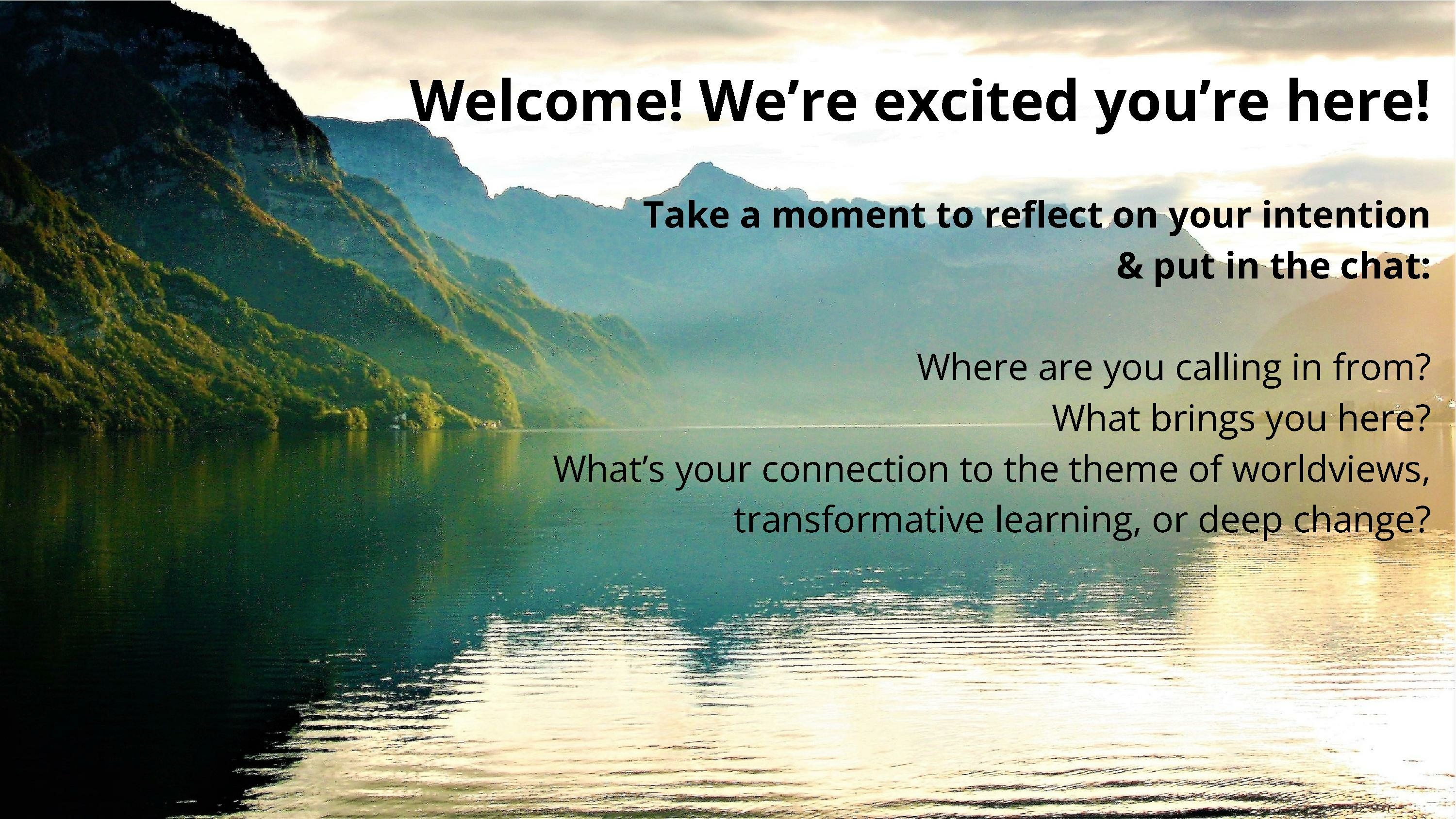Hub, Innovative Lehrformate für BNE, 12.03.2024
Presenting the "Worldview Journey" (Annick de Witt, P.hd.) as an innovative teaching method.
| Hub, Innovative Lehrformate für BNE, 12.03.2024 | |
|---|---|
| Datum | |
Di 12 März 2024 11:00 Uhr
| |
| Verantwortlich | |
| Schwerpunkte | |
BNE in der Lehre | |
| Bezug Wiki-Themen | |
| Stichworte | |
Innovative Lehrformate
|
Agenda und Informationen
Input: Annick de Witt (Utrecht)
Topic: In this interactive session, Annick de Witt, Ph.D. will present the Worldview Journey - a new transformative learning approach aimed at exploring, exchanging, and expanding worldviews. This approach builds on her extensive research into worldviews and sustainability, and has been developed in creative collaboration with Utrecht University, where it has been tested with at least 2.000 students. The approach has proven successful in creating deep learning spaces that support existential reflection and open-mindedness as well as meaningful dialogue and connectedness amongst students. It has been designed to scale and can be used in a variety of group learning and change-making contexts.
Contact: Annick de Witt (E-Mail)
TOPS
TOP 1: Presentation by Annick de Witt about the Worldview Journey
Recording of the presentation: Recording.
TOP 2: Exercise
The following exercise is intended to give an impression of the method.
https://yopad.eu/p/Worldview_Journey_Hub_(Annick_de_Witt)
Stream-of-consciousness dialogues (English)
Instructions:
- 2 people x 3 prompts x 3 min = ± 20 min + few min for open dialogue
- Decide who starts and who keeps the time.
- Talker speaks stream-of-consciousness style, until the time's up, repeating and completing the prompt (go with the flow, verbalize your experience).
- Listener practices deep listening - without interruption or reaction! Listen to understand, be present, offer your full attention.
- Then shift roles (and you can change up who starts too).
- Commit to having a confidential conversation.
Prompts:
- What I’m grateful for in my life is...
- What stood out to me in the presentation we just heard is...
- What I’d like to learn, understand, or develop with respect to the theme of worldviews, transformative learning, and deep change is...
Stream-of-consciousness-Dialog (German)
Vorgehen:
- 2 Personen x 3 Prompts x 3 Minuten = ± 20 Minuten + etwas Zeit für einen offenen Dialog
- Ihr entscheidet, wer anfängt zu sprechen und wer die Zeit beobachtet.
- Der/die Sprecher:in spricht im Stil des „Bewusstseinsstroms“ (stream-of-consciousness), bis die Zeit abgelaufen ist. Bleibt im Fluss und teilt spontan eure Gedanken und euer Erleben. Es gibt kein richtig oder falsch beim Beantworten der Prompts. Teilt nur, was ihr teilen wollt.
- Die Zuhörer:innen üben tiefes und empathisches Zuhören - ohne Unterbrechung oder Reaktion! Es geht dabei darum zu verstehen, präsent zu sein und sich gegenseitig die volle Aufmerksamkeit zu schenken.
- Danach werden die Rollen getauscht (bei jedem neuen Prompt könnt ihr auch neu entscheiden, wer anfängt)
- Alle einigen sich darauf, ein vertrauliches Gespräch zu führen.
Prompts:
- Wofür ich in meinem Leben dankbar bin, ist...
- Was mir an der Präsentation besonders aufgefallen ist (oder was mich besonders angesprochen hat), ist...
- Was ich in Bezug auf das Thema Weltanschauungen, transformatives Lernen und tiefgreifende Veränderungen lernen, verstehen oder entwickeln möchte, ist...
Top 3: Questions and answers
- What if students don’t prepare?
- We really encourage students strongly to prepare. Generally they do, and they even frequently remark in their evaulations to have enjoyed the preparations.
- If they don’t, there’s not much we can do. Soemtimes they come to regret they didn’t.
- We design the program this way consciously, as it makes it possible to have this deeply interactive time with each other during the live sessions.
- More about the stream-of-consciousness-narrative?
- This is a very potent technique that we have developed and have had remarkable results with, both with students as well as other groups. The combination of deep listening and free flow authentic expression in a structured conversation with well-thought through prompts can do wonders for learning, and for bonding (research on this is forthcoming!).
- How many different disciplines should be in a class to generate/ talk about different worldviews?
- We create a special function for this on our platform, so we can create optimally worldview-diverse groups.
- How to not overwhelm students?
- We created an introduction to the program, with input about transformative learning, comfort zones, encouraging students to ‘breath through’ potential difficulties and encouraging a growth mindset.
- However, our experience is that most of the time, though students may be scared or shy at the very beginning, the intimacy of the exercise and the overall space we create results in a feeling of safety and support.
- We also make sure we formulate the prompts in a quite open manner, so students are still completely free what they want to talk about, and where they take the dialogue.
TOP 4: Experience of the exercise
Some impressions…
- “Even though I’m an extrovert, it was not easy to talk for three minutes, but so interesting! And it did became easier over time.”
- “I learned more about listening and how difficult it actually is not to interrupt/ react.”
- „Through this methods I became aware of blind spots in my thinking. It really helped me see things I otherwise overlook. Potent.“
- “Good training for listening and being aware, not being busy by thinking of answers.”
- “Special to hear myself speaking - quality of the language and trying to be connected with my emotions – connected me with another language, not the analytical language, more an intuitive language.”
- “This exercise is really nice because as an introvert I tend to be afraid of judgement, but this set-up helps because you know someone won’t interrupt or react or tell you you;re wrong. It feels nonjudgemental.”
- “Exercise is going very deep.”
